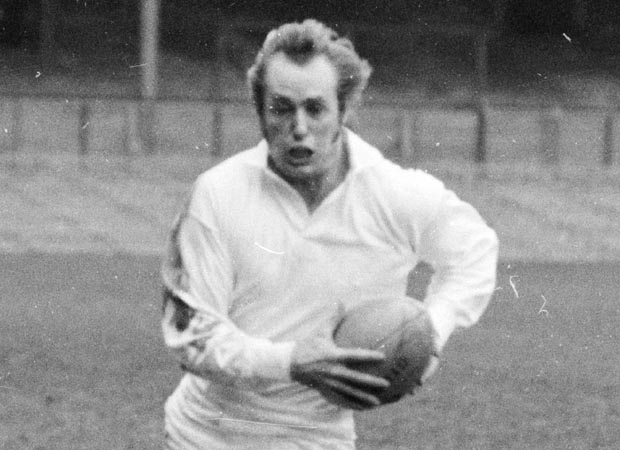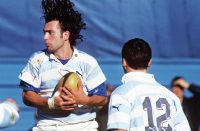 In one sense I was really grateful my career overlapped a great period for rugby in the British Isles. My game was all the better for playing with some of the sport’s legends during the 1971 Lions tour, but on the other hand, I felt my least fulfilled when playing for England.
In one sense I was really grateful my career overlapped a great period for rugby in the British Isles. My game was all the better for playing with some of the sport’s legends during the 1971 Lions tour, but on the other hand, I felt my least fulfilled when playing for England.
We had some fine players back then but absolutely no self-belief. The former England and Northampton flanker Don White was the first-ever national team coach and we had an inaugural training session at Twickenham in the summer of 1969 ahead of the Springboks’ winter tour, which was dominated by apartheid demonstrations.
That was a step in the right direction but selection of the national team was far too inconsistent and even senior players like myself felt like we were always playing for our places. The resulting feeling was one of paranoia. Even so my return of 10 tries from 36 games was disappointing and you could say I was a lazy player who didn’t look for the ball enough.
If I had my time again I’d have been a lot more industrious – perhaps like Chris Ashton is today. The primary tactic back then was for the fly-half to kick the ball to gain ground so I didn’t see it too often stood out on the wing. Alan Old was a very fine fly-half and a very good runner of the ball but playing to the orders of the coach he kicked far more than he probably should have done.
I’d like to think I was one of the few wing three-quarters, certainly in my generation, who was very comfortable playing on either flank. For England it tended to be on the left whereas for the Lions I played a lot of provincial matches on the right wing.
That was the case in New Zealand in ’71 when I scored a record six tries against West Coast-Buller. Funnily enough, I wasn’t even originally selected to play and only came in after the first-choice winger and his replacement, my very good friend John Spencer, picked up knocks beforehand.
All six tries were scored wide out and remarkably Bob Hiller converted them all. 1971 was a great tour and I was desperately disappointed not to travel with the Lions again to South Africa in ’74, that’s my biggest regret. I suffered a nasty groin injury and my specialist advised me to take a complete break from playing for three months. JJ Williams replaced me and ironically went on to match my six-try tally – a feat Jason Robinson came close to repeating only to fall one try short in 2001.
The Lions disappointment aside, I tend to think of 1973 and ’74 as my vintage years. It all started at the end of January with the Barbarians match against New Zealand at Cardiff Arms Park, where I’d been on the losing side (again) for England in the Five Nations the week before.
As the only Englishman in the backline, it was such a contrast to have the crowd on my side on this occasion. I was referred to as ‘Dai’ by the Welsh, because they felt I played like them, and that was a real honour. In fact, I don’t think I’ve received a better compliment and I ended up calling my autobiography ‘Dai for England’.
On the 1971 Lions tour I’d really hit it off with Willie John McBride and to this day he is my closest friend in rugby: they simply don’t make them like him anymore. For him to say I was like a ‘second brother’ was one hell of a compliment. Our relationship played some part in making sure the Ireland v England game at the height of The Troubles went ahead, a fortnight after the Baa-baas game.
When the England squad met up at my hometown club Coventry for the first of two Sunday training sessions I could tell that quite a few players were nervous about travelling so I rang Willie John for his view. After an animated conversation, he told me not to let the terrorists win. I relayed that message to the squad at the next get-together which I think helped put people’s minds at rest a bit. The RFU had told the media – but not the squad – that any player was free to pull out without fear of it prejudicing future chances but a couple did and never played for England again. When we ran out, the whole of Lansdowne Road erupted; it was very moving.
Less atmospheric was the RFU Knock-out Cup final later that year. Only 7,700 spectators and three dogs turned up to see Coventry, who I captained, beat Bristol 27-15. John Pullin, the Bristol and England captain, had to leave the field early on with a nasty gash to his leg. Back then replacements weren’t allowed so Bristol had to play with 14 men. Nevertheless they played like men possessed and gave us an almighty scare. Post-match I said I felt embarrassed about the circumstances in which we’d won the game.
A few days later a bank colleague of mine in the north of England sent me a letter saying he could understand why I was red-faced: inside was a cutting from the Yorkshire Evening Post, which read: ‘David Duckham, Coventry captain, admitted to being embarrassed after leading his side to victory in the Cock-Out Cup.’
I’ve got the article to this day! The following year I was privileged to captain Coventry to victory again, in the club’s centenary, against London Scottish.
As told to Jon Newcombe
























